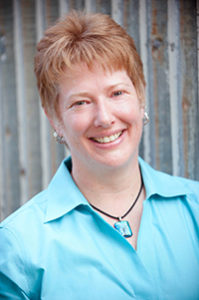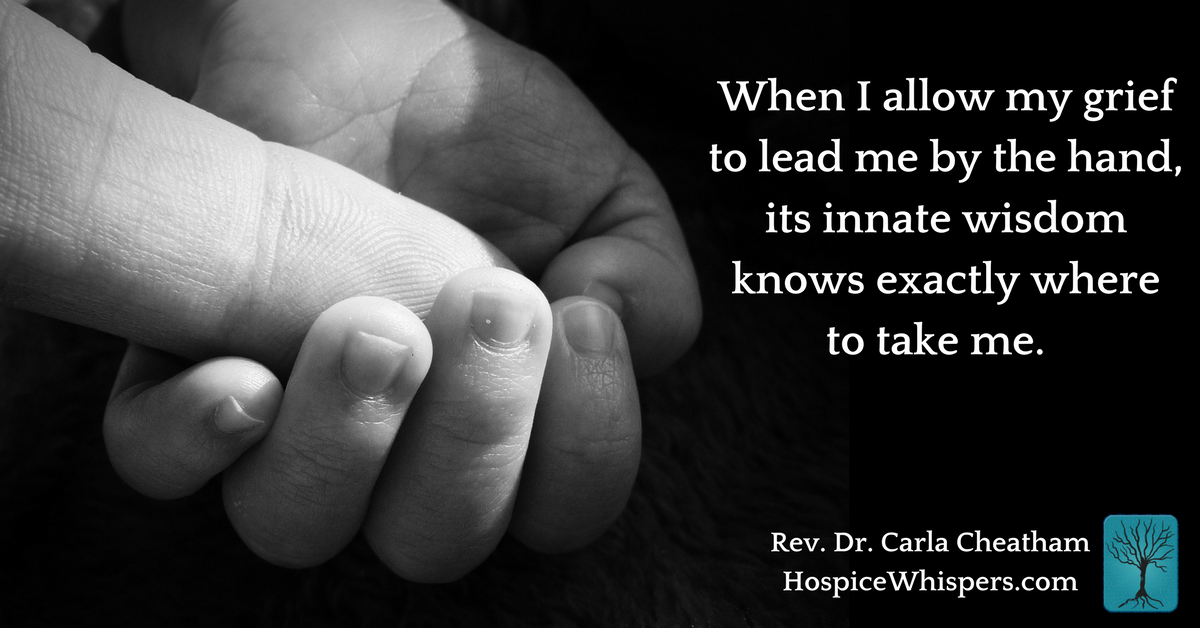By Rev. Dr. Carla Cheatham, 4-minute read.
I have been spending a lot of time with a child in my life, recently, and the experience has given me a bit of a different perspective on the way we interact with our grief.
My early career was in child and family therapy and my time in parish ministry meant I was constantly around children. I’ve always had the joy of being “Aunt Carla” to a lot of my friends’ kids and grandkids. I’ve been a baby-rocker and even children’s coach at times in my career. I understand the developmental stages children go through to develop a strong sense of self and security within their world.
I’ve spent the past 10 years working at the other end of life, supporting patients and loved ones in the face of a terminal illness. My professional focus, therefore, has been largely on grief and psychosocial-spiritual healing.
Last week, something clicked between these two worlds of mine in a way that is still sinking into my heart and mind.
The child with whom I’ve been spending time is clearly in the stage of developing autonomy and beginning to initiate more within her little world. She frequently clasps her tiny hand around my forefinger and tugs with all her might, as she leans the full weight of her slight toddler frame in the direction she wants me to go. In her lilting voice, insistent with excitement, she tells me, “M’ere”.
If ever I hesitate even for a moment, or move too slowly for her taste, she becomes even more demanding, “M’on!”, and puts both hands around my fingers to pull harder.
She takes me to where she wants to go and shows me what she needs me to see. She tells me all about whatever treasure or trouble is consuming her focus and commanding her attention, just as she commands mine.
On one recent trek, being led on her latest urgent adventure, I smiled at the preciousness of this moment. I could see this young human developing before my eyes and finding her way to a sense of calm interdependence in this world, neither needing others too much nor being isolated behind a guard of total independence.
I heard in her voice how crucial this locust shell, or whatever she needed to show me, was to her. I felt how much it meant to her building psyche to know that she could influence a grownup to come with her, and count on them, on me, to see and understand what was of the utmost importance to her in that moment.
I knew it wasn’t about the dead butterfly she was leading me to stoop over and examine, or the favorite book she wanted to lead me to so she could plop into my lap while I read to her. It was about the connection, about creating a sense of safety that her voice had power, that she could trust herself to find what she needed, dare to ask for it out loud, and count on others to respond when asked. She needs to know that what is important to her will be important to others, if for no other reason than because she is important to them.
She needs to know she has safe space within which to explore and practice; that there are boundaries of containment that will not let her go too far and a finger to cling to that will not let go until she’s ready; that she is not a nuisance or too much or too needy or too shameful to scoop up and snuggle and be held until she’s ready to move on her own, once again.
Here is what we know from developmental psychology—that if a child’s initiative is squelched, controlled, or punished, the child will come to feel insecure and guilty, as if they are a nuisance. This will prevent a child from feeling safe within the world, and within their own skin.
They will shut down in shame and out of self-preservation, since there is no one there to respond to the protestations expressing their need. They will learn not to trust or feel hope. Their creativity will be squelched and their spirit will get small, even as their body grows.
Creativity, hope, and trust are important elements in grief. As we seek to build a new life without the one who (or thing or ability that) is no longer there, we need to have a sense of self, of trust, and of hope in other connections to ground ourselves in this world. As we revise our narrative to find meaning and make sense of our loss, we need to be able to creatively re-imagine our world, lest we become stuck in our former one.
As this tiny human being earnestly pulled me with her on her journey, I caught a glimpse of grief personified. When I have allowed my grief to take me by the hand, lead me where she needs to go, tell me what she needs me to hear, pause to sit and reflect on memories as colorful dead butterflies, plop down in a beanbag to hold her gently with the comfort of a good book, she trusts me and moves freely without shame exactly where she needs to go.
As I rest when my grief tells me she needs to rest, eat when I know that it is time for that to be important, listen intently to both her words and her silence, bring her into the light of safe connection with others or sit with her as she hides for a time in the cool darkness of a blanket fort, I’m telling my grief that I do not see her as a nuisance or too needy or too much.
I sweetly tell her that she is valuable and worthy and even normal and that the way she feels is completely understandable; that bullies who do not understand or who lash at their own fears of grief by lashing out at or shaming her have no room in her world, so we are to avoid them out of self-protection.
I let her know that she is not alone, that I will not abandon her, and give her the hope that someday she will feel the fullness of safety and love and belonging once again. And until she does, I am with her.
When I allow my grief to lead me by the hand, its innate wisdom knows exactly where to take me. By following it, I give it the space it needs to safely develop to a new and even healthier place.
Of course, a healthy parent makes room for a child to lead and explore and initiate while also providing boundaries for a sense of safety. Bedtimes are needed. Good food must be taken in. Personal grooming is important. Chores must get done.
But I never again want my grief to feel as if it has no room in this world or that I resent it. I do not want to set either of us up for it to shut down in shame or push back hard on me in rebellion.
I want it always to tell me what it needs me to know, to feel seen and heard, shown up and well cared for, and to have hope that, over time, peace will outgrow fear and despair.
For what it’s worth.
Peace,
Carla
 Rev. Carla Cheatham, MA, MDiv, PhD, TRT has served hospices as a chaplain and bereavement coordinator. She’s the Section Leader for the Spiritual Caregivers Section of the National Hospice and Palliative Care Organization and an adjunct professor at the Seminary of the Southwest. Through her Carla Cheatham Consulting Group, Carla provides training and consulting for professional caregivers nationwide. She is the author of Hospice Whispers: Stories of Life and its companion volume, Sharing Our Stories: A Hospice Whispers Grief Support Workbook. Her next book, On Showing Up with Suffering: Others’ and Our Own, is set to publish in 2017.
Rev. Carla Cheatham, MA, MDiv, PhD, TRT has served hospices as a chaplain and bereavement coordinator. She’s the Section Leader for the Spiritual Caregivers Section of the National Hospice and Palliative Care Organization and an adjunct professor at the Seminary of the Southwest. Through her Carla Cheatham Consulting Group, Carla provides training and consulting for professional caregivers nationwide. She is the author of Hospice Whispers: Stories of Life and its companion volume, Sharing Our Stories: A Hospice Whispers Grief Support Workbook. Her next book, On Showing Up with Suffering: Others’ and Our Own, is set to publish in 2017.



Leave a Reply